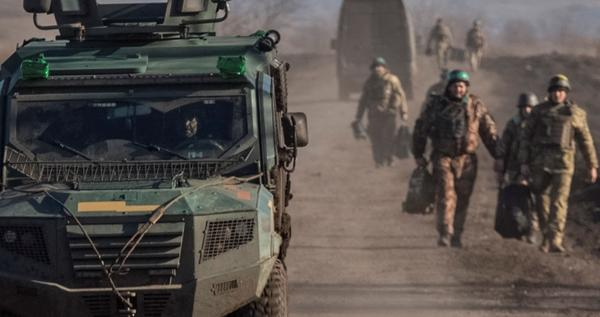In recent months, the Swedish government has issued alarming warnings about the possibility of war, leaving many citizens concerned about the potential implications. As tensions continue to escalate, it’s important to understand the context of these warnings and their impact on public perception. In this blog post, we will delve into the government’s response to the ‘war’ warnings, as well as the preparation and readiness for potential conflict. We will also explore the social and economic implications of heightened tensions and examine the international reactions to Sweden’s warnings. Join us as we navigate through the complex landscape of war warnings and their far-reaching effects.
Understanding The Context Of ‘War’ Warnings
When it comes to understanding the context of ‘war’ warnings, it is important to consider the historical and political factors that contribute to such declarations. The term ‘war’ carries significant weight and implications, and its usage by governments and authorities is not taken lightly. Understanding the context of these warnings involves delving into the geopolitical landscape, diplomatic relations, and potential threats that may be looming on the horizon.
One key aspect to consider is the specific language and rhetoric used in ‘war’ warnings. Words such as “imminent threat,” “military action,” and “national security” can have a profound impact on public perception and the overall sentiment towards the situation. The government and media play a crucial role in shaping the narrative and framing the context of ‘war’ warnings, which can have far-reaching consequences on societal attitudes and behaviors.
Moreover, the historical background and precedents of ‘war’ warnings must be taken into account, as they provide valuable insights into the potential outcomes and responses. By examining past instances of heightened tensions and conflict, it is possible to gain a deeper understanding of the current context and assess the likelihood of escalation or de-escalation.
Impact Of Alarming Warnings On Public Perception
Alarming warnings of potential conflict or war can have a significant impact on public perception and the overall psyche of a society. When authorities issue warnings of this nature, it can lead to heightened anxiety, fear, and uncertainty among the general population. The impact is not just limited to emotional and psychological effects, but it can also have broader social, economic, and political implications.
One of the immediate effects of alarming warnings is the disruption of normal daily activities as individuals and communities start preparing for the potential threat. This could lead to panic buying, stockpiling of essential goods, and an overall sense of unease. In extreme cases, it may also lead to civil unrest and social upheaval, as people grapple with the uncertainty of what the future holds.
Furthermore, the impact of alarming warnings on public perception can also influence political decision-making and policy formulation. The government may be compelled to allocate resources towards preparedness and defense, diverting attention and funding from other critical areas such as healthcare, education, and infrastructure development. This can create a ripple effect on the overall well-being and development of a society.
Government’s Response To The ‘War’ Warnings
When a country receives a warning of potential war or conflict, it is the responsibility of the government to respond swiftly and effectively. The government’s response to such warnings can have a significant impact on the safety and security of its citizens, as well as the stability of the nation as a whole.
One of the primary ways in which the government responds to war warnings is by enacting emergency measures to ensure the safety and well-being of its citizens. This may include bolstering national defense capabilities, implementing evacuation plans, and providing essential supplies to the population. Additionally, the government may also seek to establish diplomatic channels to negotiate peace and de-escalate tensions with other nations involved in the conflict.
Furthermore, the government’s response to war warnings must also take into account the economic and social implications of potential conflict. Heightened tensions and the prospect of war can have a detrimental impact on the economy, leading to instability in financial markets, disruptions in trade, and increased uncertainty among citizens. As such, the government must take proactive measures to mitigate these risks and to safeguard the country’s economic well-being.
Preparation And Readiness For Potential Conflict
When it comes to the threat of potential conflict, it’s crucial for governments and individuals to take proactive measures to ensure preparedness and readiness. Whether it’s a heightened geopolitical tension, a looming military confrontation, or even a natural disaster with potential security implications, being prepared for such scenarios is essential for minimizing the impact and ensuring a swift response.
Preparation for potential conflict involves several key aspects, including military readiness, disaster response planning, and diplomatic efforts to prevent escalation. For governments, this may involve increasing military training and exercises, enhancing infrastructure for emergency response, and engaging in diplomatic dialogue to defuse tensions. For individuals, it means being informed about potential threats, having a plan of action in case of emergency, and stocking essentials like food, water, and medical supplies.
One crucial element of preparation for potential conflict is the collaboration and coordination between different levels of government, as well as with international partners. This includes sharing intelligence, coordinating military efforts, and supporting each other in times of crisis. Additionally, public awareness and education campaigns play a significant role in ensuring that the populace is informed and prepared for potential conflict situations.
Social And Economic Implications Of Heightened Tensions
Heightened tensions between nations or within a nation can have significant social and economic implications. When countries are on the brink of conflict, it can lead to increased anxiety and fear among the population. This can impact mental health, productivity, and overall well-being. Additionally, the threat of war can have a detrimental effect on the economy, leading to instability, decreased investment, and potential job losses. It’s important to understand the far-reaching consequences of heightened tensions and the need for diplomacy and peaceful resolution.
One of the key social implications of heightened tensions is the impact on mental health. Fear of conflict and the uncertainty of the future can lead to increased stress and anxiety among the population. This can have a domino effect on individuals, families, and communities. It’s crucial for governments and organizations to provide support and resources for mental health during times of increased tension.
From an economic perspective, heightened tensions can lead to instability in the financial markets, decreased consumer confidence, and a decrease in investment and trade. This can have a ripple effect on businesses, leading to potential job losses and economic downturn. Additionally, the cost of military preparedness and the potential cost of conflict can put a strain on government budgets, leading to potential cuts in other important areas such as education, healthcare, and social services.
International Reactions To Sweden’s ‘War’ Warnings
Sweden’s recent ‘war’ warnings have caused a stir not only within the country but also internationally. The European Union, neighboring countries, and other global powers have all reacted to the news, with each expressing their own concerns and responses to the situation. The varying reactions shed light on the complexity of international relations and the impact of such warnings on the global stage.
One of the immediate responses to Sweden’s ‘war’ warnings came from the European Union, which expressed solidarity with the country and offered its support in addressing the potential threat. This display of unity among European nations highlights the importance of collective security and cooperation in times of heightened tensions. The EU’s stance also serves as a reassurance to Sweden, signaling that it is not alone in facing the challenges posed by the perceived threat of conflict.
On a global scale, major powers such as the United States, Russia, and China have also weighed in on Sweden’s ‘war’ warnings. The reactions from these countries have underscored the interconnected nature of international politics and the ripple effects of regional tensions. It is evident that the implications of such warnings extend far beyond the borders of Sweden, prompting a range of responses and considerations from key players in the international community.
















